Dispatches From Cairo: Egypt’s War on NGOs
National law gives the executive authorities overly broad discretion to forbid groups to do anything that authorities might see as "threatening national unity" or "violating public order or morals,” vague terminology that lays the law open to abuse and has served as a basis for the denial of registration to some NGOs.With a raised fist, 2011 staggers bleeding and shouting to a close in Egypt.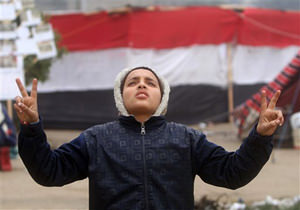
We asked Lauren Unger-Geoffroy, an international artist who lives in Cairo, to share her perspective of life in Egypt after the revolution. In this entry, she writes about a campaign by authorities against nongovernmental organizations operating in Egypt to foster democracy.
CAIRO — With a raised fist, 2011 staggers bleeding and shouting to a close in Egypt. On Thursday, security forces raided the offices of 17 nongovernment civil liberties organizations. Among them were facilities of two prominent U.S.-based groups and local offices of the U.S.-based International Republican Institute (IRI) and the National Democratic Institute (NDI). Documents and office machines were confiscated as part of an investigation by Egypt’s military into the funding of pro-democracy and human rights organizations.
“Security forces who said they were from the public prosecutor are raiding our offices as we speak. They are grabbing all the papers and laptops as well,” one person working at the NDI reported. Employees at the raided offices were not allowed to leave during the searches.
The Supreme Council of the Armed Forces (SCAF) has said repeatedly it will not tolerate foreign interference in the country’s affairs.
Under orders from the central bank within the last three weeks, private banks such as HSBC and Commercial International Bank have contacted at least four well-known independent human rights organizations that bank with them to inquire about incoming transfers of funding from foreign sources. Clearly, the government was preparing the crackdown that came Thursday.
And now the reality divide:
The U.N. Declaration on Human Rights Defenders, adopted by consensus in the General Assembly in 1998, provides that states must ensure “the right, individually and in association with others, to solicit, receive, and utilize resources for the express purpose of promoting and protecting human rights and fundamental freedoms.”
In September, a Justice Ministry report identified more than 30 NGOs that were receiving foreign funding and were not registered with the Social Solidarity Ministry as required by the Associations Law. The offense is punishable with imprisonment.
Minutes of a July 27 Cabinet meeting stated that the Cabinet “fully rejects all forms of foreign intervention in internal affairs including direct foreign funding of all forms that is given to Egyptian and international organizations and civil society groups that operate in Egypt without authorization and in violation of Egyptian laws.”
The Social Solidarity Ministry, under the restrictive 2002 Associations Law, has effectively blocked funds to projects and organizations dealing with human rights violations such as torture. It has accomplished this mainly by denying registration to groups it considers controversial.
The NDI and the IRI are associated with the U.S. Democratic and Republican parties, respectively, but insist that they are neutral, claiming their sole interest is helping establish democracy in Egypt by training members of inexperienced political parties in democratic processes.
“The National Democratic Institute has been training new parties … in how to participate in elections,” a leading member of a liberal party said on condition of anonymity. “This has been with the full knowledge of authorities and was not clandestine.”
The NDI says on its website that it “organises an exchange of ideas between countries that have managed a transition to democracy and others that aspire to it.”
The IRI says it is working with Egyptian activists to teach them political party development, campaign strategy and public opinion research.
Deputy Defense Minister Maj. Gen. Mohamed al-Assar told an audience at the United States Institute for Peace in Washington, D.C., on July 25, “It is inconceivable that 40 million US dollars should go toward human rights when we have much bigger problems than this.” He was referring to the amount the U.S. Embassy earlier announced it had earmarked for democracy and human rights groups in Egypt. He also said that foreign funding for nonregistered organizations “represents a danger, in light of the recent incidents where many police weapons were lost, and about 20,000 prisoners escaped from the prisons of Egypt following the events experienced by the country.”
On July 28, Field Marshal Hussein Tantawi, the head of the SCAF, said: “There are foreign players who feed and set up specific projects that some individuals carry out domestically. … It is possible that there is lack of understanding, that foreign players are pushing the people into inappropriate directions.” He added that these elements “do not want stability for Egypt.”
On Aug. 7 the state security prosecutor, without naming any of the groups, accused organizations that “illegally [receive] funding from foreign sources” of “grand treason, conspiracy against Egypt and carrying out foreign agendas to harm Egyptian national security.” Such cases would be referred to the Emergency State Security Court, which operates under the emergency law in effect in Egypt since 1981; the court, in which there is no right to appeal, operates outside the regular court system.
While it’s true that many of the organizations targeted have been criticizing the military for torture and military trials, and NGOs observing the upcoming elections have been among those targeted, an objective observer can wonder whether indeed there might be at least a speck of validity on the government side of the dispute. The stress of trying to figure it out makes most Egyptians prefer to be fed the government’s truth-of-the-day in a flavor they can understand.
National law gives the executive authorities overly broad discretion to forbid groups to do anything that authorities might see as “threatening national unity” or “violating public order or morals,” vague terminology that lays the law open to abuse and has served as a basis for the denial of registration to some NGOs.
“It sends alarming signals about the transitional government’s commitment to human rights that Egyptian authorities have started a criminal investigation with the same methods Hosni Mubarak used to strangle civil society,” said Joe Stork, deputy Middle East and North Africa director at Human Rights Watch. “Egypt should reform the Associations Law to protect civil society’s independence and freedom instead of tightening the screws further and threatening criminal prosecution.”
The current elections, if they survive Egypt’s endemic lack of transparency, well might result in a governing body that would represent the people and shape a new system, starting with a new constitution. But the country struggles under a vast, chaotic, handwritten-paper-based bureaucracy that casts a murk over public life. Among those running Egypt, transparency is a threat to stability because it inevitably causes public debate and gives people information to dispute government actions — leading to protest, conflict and rebellion. In fact, in Egypt there is a lack of accurate information in almost every aspect of society — current events, public understanding of laws, punctuality, the work of researchers and experts, knowledge of government and security operations. The effect is an acceptance of inexactitude that permeates the culture and allows the people to tolerate an ever-changing kaleidoscope of “truth” and vastly inconsistent facts and figures manipulated in glaringly blatant ways. The lack of basic information has been an obvious barrier to cohesive partisan choices based on facts and has deeply complicated the transition to an effective democratic process.
While the generals pretend to be reluctant rulers, the power remains in the hands of the military, which by design fosters confusion and fear that thwart the shift to a new system of government. A good example of the obfuscation is the current, almost undecipherable electoral procedure — a referendum, two elections of three rounds each for a legislature, another referendum on a constitution, and then a presidential election. Domination of the elections by conservative forces such as the Muslim Brotherhood and the Salafis is no surprise; they offer a mirage of stability. The people know the Quran and Shariah. Allah is great. God save us.
On Friday, those supporting the ruling generals finally had their own demonstration square, and dueling protests took place in central Cairo, thankfully a few miles apart.
In the Abbasiya district, some hundreds of pro-military demonstrators accused foreign journalists of manipulating reports of military abuse and charged U.S. Secretary of State Hillary Clinton with interfering in Egypt. One sign bearing a picture of Clinton said, “Hilary stay out of Egypt’s business and better watch your husband’s wandering eye.”
Foreign reporters were not allowed in, and many Egyptian journalists were driven out of the area and in some cases, they said, physically attacked amid accusations that they were helping to destroy the nation.
The protest against the generals occurred in Tahrir Square, where the demonstrators held up pictures of “bluebrawoman” and other images. It was the largest protest since February, estimated by some at more than 100,000. The crowd was peaceful and actually euphoric, as in some earlier moments of the revolution, with women being protected symbolically. Revolutionary pride was regained for the day.
On Wednesday, I walked across the metro tracks en route to my home, going over the covered bridge, happy to discover that it was newly endowed with light. I held up my scarf to cover my face, to keep from attracting male attention and also to protect against a strong wind carrying dirt from the deep drifts of garbage along the inside of the bridge; skinny cats caroused nearby. I bought some taffies at the candy shop at the bottom before climbing the 100 steps to go over the bridge.
In the new orange light (such a relief from the previous darkness), I saw the small, curled body of a boy lying in a pile of garbage, barefoot and filthy with his arms around a large plastic soccer ball. I stopped to see if he was dead or alive. He seemed alive by the way his arms held his ball. People passed and looked at me hesitating there. I shot them a questioning, worried look: Is this child OK? Do we just assume he’s sleeping and has parents nearby? But they avoided looking at him, and their disdainful glances made it clear that they thought I should too.
I decided the boy was all right, just taking a nap. I shifted my eyes toward the bottom of the steps on my side, seeking the usual beggars. Perhaps he was with one of them. I saw four or five beggars in their usual spots, unmoved to clear the rubbish around them. Plastic bags and sandy dirt flew through the air.
I looked back at the boy. I wouldn’t wake him. A dozen possible stories entered my mind. He had fought with his parents, he’s sleeping here awhile and he’ll go back to them.
I left my bag of taffy. He didn’t move. I was going to say something to the beggar woman I see everyday on the bottom of the steps, but the couple who passed me on the bridge looked at me again as if I was impolite to be concerned.
No statistics here.
There had been several kids like the boy in Tahrir, running around with purpose, bringing water, food, doing errands, finding a welcome and a sense of belonging — there among the legs of an Egyptian revolution that will become their world.
Now, what NGO will help the boy I saw that night?
As I count the casualties of 2011 in this fading year of cataclysmic shift, I have been thinking of that child. I even dreamed about him and the ball — he was laughing.
He was gone from the spot the next day, the day NGOs went down.
Happy New Year, Egypt. Koll sana wenta tayeb. May the next year be good to you. Insha allah.
Your support matters…Independent journalism is under threat and overshadowed by heavily funded mainstream media.
You can help level the playing field. Become a member.
Your tax-deductible contribution keeps us digging beneath the headlines to give you thought-provoking, investigative reporting and analysis that unearths what's really happening- without compromise.
Give today to support our courageous, independent journalists.

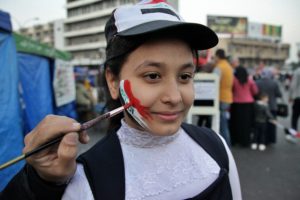
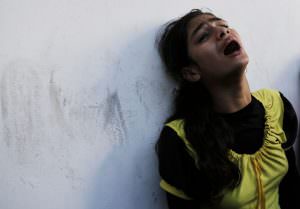
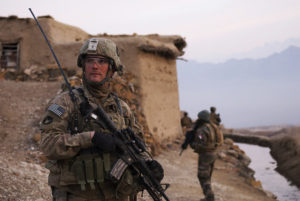
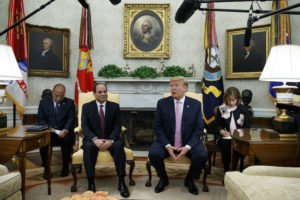

You need to be a supporter to comment.
There are currently no responses to this article.
Be the first to respond.